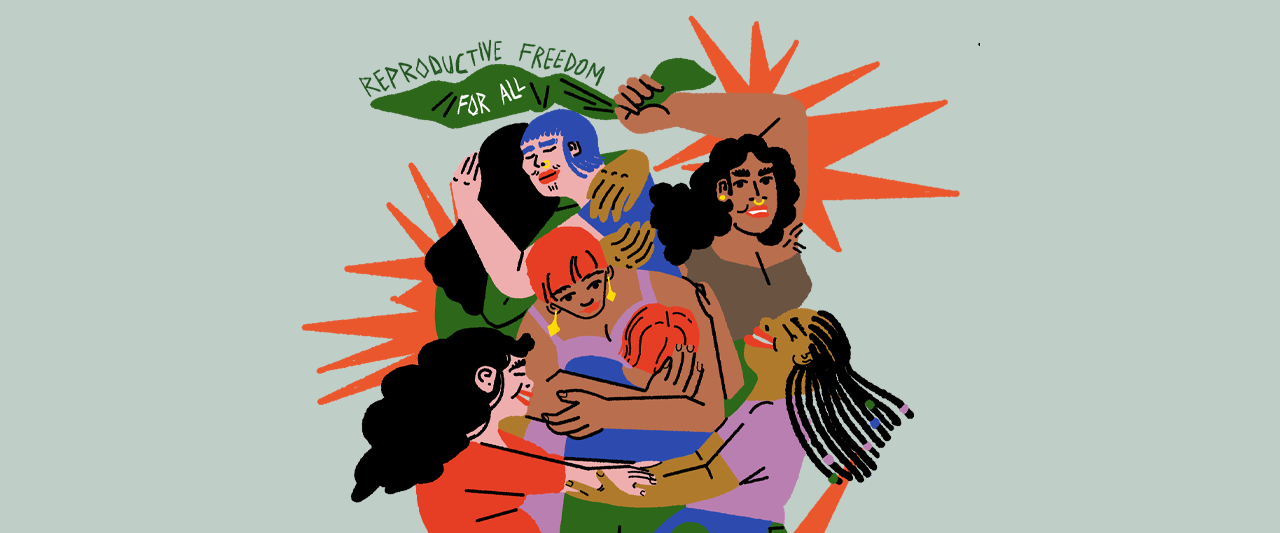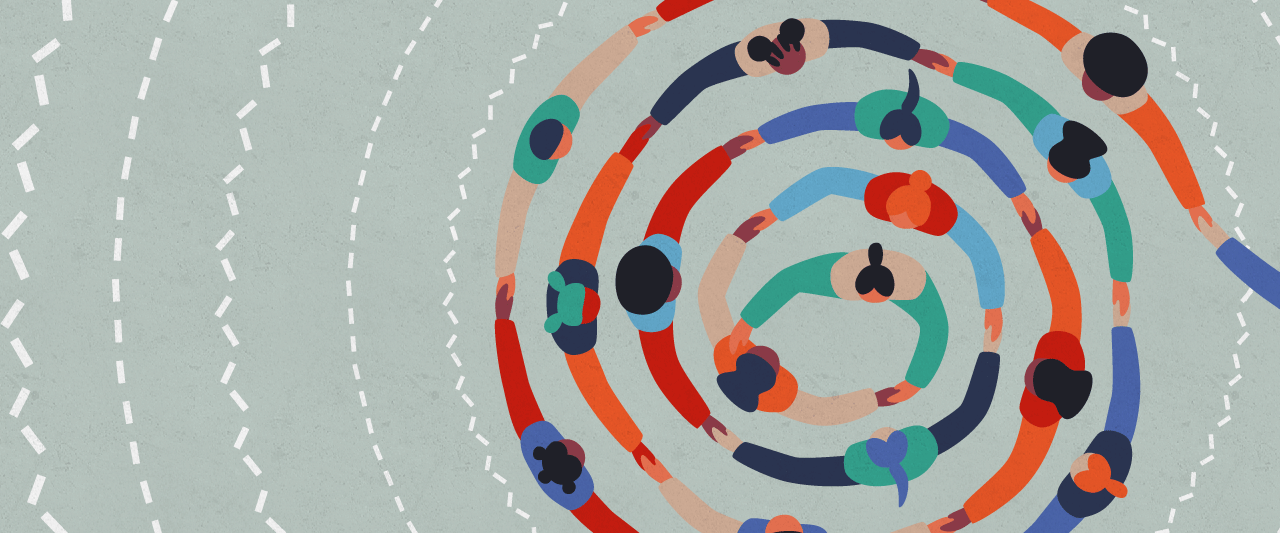Celebrating International Women’s Day 2024
Plentiful research shows that when abortion is legal, available and affordable, women and girls can better overcome obstacles to gender equity and realize their full potential. That’s why on this International Women’s Day, we’re sharing nine ways abortion access helps close the gender gap, and examples of what our staff from around the globe are doing to help.
1. Education:
Abortion access enables women and girls to pursue and sustain their education, breaking down barriers to academic achievement and promoting gender equity in educational opportunities. Multiple studies link legal abortion to increased high school graduation and college attendance for women and girls.
HOW WE’RE HELPING:
Ipas is supporting local groups in Kenya to bridge gaps in education, women’s rights and reproductive health.
2. Economic empowerment:
Abortion access helps women to secure and retain employment, break free from poverty cycles, and exercise autonomy in family planning decisions. This fosters greater economic independence for women and gender parity in the workforce, translating into a stronger economy for all.
HOW WE’RE HELPING:
Ipas helped women keep working by reaching young factory workers with vital reproductive health information in Myanmar.
3. Healthy relationships:
Abortion access makes it easier for women to leave an unhealthy or violent relationship and avoid being trapped by an unplanned pregnancy. When abortion is available and affordable to more people, it also reduces gender-based violence by providing women with the means to control their reproductive lives and make decisions about their future.
HOW WE’RE HELPING:
Thanks to advocacy by Ipas and partners, legislation in Nigeria will now help ensure that survivors of gender-based violence get the quality abortion care they need—and legally protect their right to this care.
4. Human rights:
Undermining any rights poses a grave threat to human rights as a whole. Ensuring access to abortion upholds women’s fundamental rights to health care, bodily autonomy and privacy.
HOW WE’RE HELPING:
Ipas works alongside partners to advocate for reproductive justice in global human rights discussions, encouraging governments to take action.
5. Health and well-being:
Access to safe abortion services plays a pivotal role in preventing unsafe procedures and delays in care, promoting better health outcomes for women and girls who choose to end a pregnancy. Avoiding unwanted pregnancy and birth reduces stress and deters further mental health strain, especially for people already experiencing a traumatic situation.
HOW WE’RE HELPING:
Ipas partners with community-based organizations in Democratic Republic of Congo to ensure that reproductive health care—including abortion and contraception—is available to women and girls displaced by armed conflict there.
6. Poverty alleviation:
Unplanned pregnancies can worsen poverty without accessible and timely abortion care that is affordable. For women and families with limited income, having a child they can’t afford can damage their economic future and cause harm to all those they support.
HOW WE’RE HELPING:
Ipas helps people in Latin America bypass stigma and freely access confidential and accurate information on self-management of abortion with pills thanks to an innovative AI chatbot named Sophia.
7. Political and social participation:
While the world has made progress in advancing women’s rights, many women still have little decisionmaking power over their own lives—including over whether and when they get pregnant. Abortion access grants women control over their own bodies and reproductive health, empowering them to step into more leadership roles and societal participation in the public sphere.
HOW WE’RE HELPING:
Ipas works to build women-led climate justice. Women and girls are the most affected by climate disasters, yet their voices are often overlooked when finding solutions.
8. A brighter future for young women and girls:
For girls forced into marriage or domestic unions in childhood, pregnancy can pose grave risks to their health and make it nearly impossible to escape the situation. Girls and young women face higher health risks from pregnancy and birth than adult women. Timely access to abortion care can not only help young people leave an abusive relationship— it can also save their lives.
9. Avoiding preventable deaths and injuries:
Each year, 35 million people around the world resort to having an abortion with unsafe methods. Thousands die, and millions suffer injuries as a result—but this is preventable.
Access to safe abortion means more women and girls can avoid unnecessary death and injury caused by lack of this essential health care and go on to follow their dreams and lead fulfilling lives.
HOW WE’RE HELPING:
While safe and legal abortion is available in Nepal, it is out of reach for many women in remote areas where there are high rates of death from complications of childbirth and unsafe abortion. Ipas is working to change that.
How Ipas teams are celebrating International Women’s Day
Each year, International Women’s Day serves as a prompt for collective action toward gender equality, and this year Ipas staff from around the globe are celebrating that vision.
Latin America and the Caribbean
“Through social media and email outreach, Ipas Latin America and the Caribbean (LAC) is campaigning to ensure that women across [the region] are equipped with the necessary information and social backing to exercise their autonomy in decisions regarding their sexuality and reproductive health,” shares Alexandria Diaz Arceda, communications consultant for Ipas LAC. “Central to this campaign are messages emphasizing the critical importance of viewing abortion as an intersectional issue and the pressing need for its decriminalization.”
Bangladesh
“Our dedicated community-based volunteers will be staging impactful street dramas across various project sites in Dhaka to raise awareness and foster community engagement in the fight against gender-based violence,” shares Monika Aahelee, communications and content creation coordinator for Ipas Bangladesh.
India
“In line with our commitment to amplifying the voices of women and advocating for their central role in healthcare, we are preparing to launch a short awareness campaign under the theme #WomenAtCentre,” shares Nikita Bhan, senior communications officer for Ipas Development Foundation in India. “This campaign will feature quotes from women and supportive male partners. Through their insights, we aim to underscore the critical importance of placing women at the heart of health-care service delivery.”
Bolivia
“Ipas Bolivia will launch a campaign titled “Deciding is a right, not a crime”. This campaign seeks to raise awareness about the legalization of abortion in Bolivia, recognizing the right of women to make decisions about their own bodies and highlighting the situations in which the prohibition of abortion has had negative consequences for the health and lives of women,” shares Wara Rojas, communication associate, Ipas Bolivia



